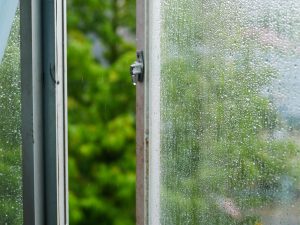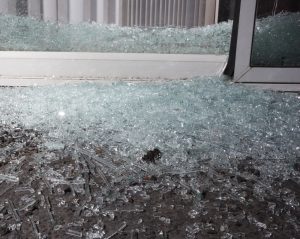The sound of a squeaking door is certainly no music to the ears. Worse, you have to deal with the noise every time you use the door. You want to put an end to it but you've heard that it isn't ideal to use WD-40. So, how do you fix it? That's what we've asked door experts and here's what they shared with us.
You can use other lubricants to fix your noisy door hinges without WD-40. You can apply household products such as Vaseline, bar soap, and cooking oil on the hinges or you can also opt for dry-film lubricants for a longer-lasting effect.
Keep reading so we can give you more tips on the different products that you can use to silence your squeaky door. We'll also discuss what causes this issue and why it isn't advisable to use WD-40 on your hinges. We'll also tell you why your hinges leave black marks and how you can clean those hinges.
![A carpenter installing a stainless steel door hinge using a screw driver, How To Fix Squeaky Door Hinges Without WD-40 [Would Vaseline Work?]](https://doordodo.com/wp-content/uploads/2021/11/How-To-Fix-Squeaky-Door-Hinges-Without-WD-40-Would-Vaseline-Work-683x1024.png)
How to Silence a Squeaking Hinge (Without WD-40)
Your door hinge is squeaking because of the friction between its metal surfaces. There is friction because of the accumulation of dirt, dust, grime, and other unwanted particles inside the hinge. But this can easily be solved through proper lubrication.
If you don't want to use WD-40 on your door hinges, you simply have to choose another lubricant. Experts recommend the use of dry-film lubricants.
Here are the materials you need to prepare and the procedure for cleaning and lubricating your door hinges.
Materials:
- Lubricant of your choice
- Hammer
- Long nail
- Rags or paper towels
Procedure:
- Keep the door closed. Work on one hinge at a time.
- Using a long piece of nail and hammer, loosen the hinge pin by gently tapping the hinge pin with the nail.
- Pull out the hinge pin.
- Clean any visible dirt on its surface.
- Apply a small amount of lubricant on the pin.
- Reinsert the hinge pin in its proper slot.
- Open and close the door to allow the lubricant to work its way throughout the hinge.
- Wipe off any excess amount of the lubricant on the surface.
That's it! With proper lubrication, the friction on your door hinges should be eliminated and they'll be noise-free whenever you open and close your door.
Is WD-40 bad for door hinges?
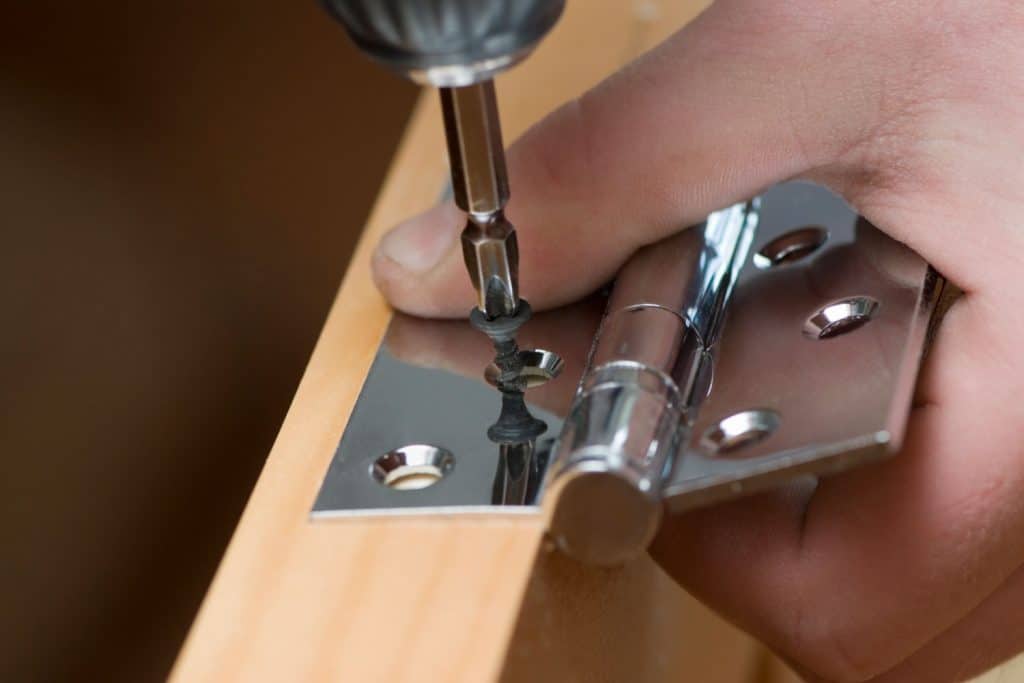
There's no doubt about it, WD-40 has many applications within your home. It's just that it's not really recommended to use for your door hinges.
Topping the list of reasons why you shouldn't use it on your door hinges is that it is not even a lubricant. 'WD' stands for water displacement. In effect, it is a degreaser. This means it can remove oil or whatever form of lubrication that your hinge still has.
WD-40 can be messy to apply. It'll attract dirt, dust, and other unwanted particles long after its application. Once these are present, your problem with squeaky doors will resume again.
WD-40 can also leave black streaks on your hinges. These are unsightly marks that can be difficult to remove.
These are the reasons why door experts advise you to refrain from using WD-40 on your door hinges.
What can I use instead of WD-40 on door hinges?
If you're at a loss upon knowing that it isn't recommended to use WD-40 on your door hinges, don't worry because there are a lot of other options out there. You might even be surprised about some of the household products that you can use to stop that door from squeaking.
So, what can you use instead? Here's a list of products that you can use:
- Vaseline or petroleum jelly
- paraffin wax candles
- bar soap
- cooking oil such as olive, canola, and coconut
- 3-in-1 Multipurpose Oil
- dry-film lubricants
You can use these items as lubricants for your door hinges. Some of them are good only as quick-fix solutions such as the use of cooking oil while some of them will actually work for a long time like dry-film lubricants.
The main reason why some of them won't work long term is that they tend to attract dirt and grime which are the main culprits in this situation. Oil will also harden over time which will make it even harder for you to move your door hinges.
Vaseline and other petroleum jelly products are effective lubricants for your hinges. Rub a little amount on the hinge pin as well as on the top portion of the pin slot. Vaseline will adhere well on these surfaces so it won't be messy. Just wipe off any excess once you're done moisturizing your door hinge.
The key points here are precise application and keeping the surface dry after lubricating. There's no mess and your hinge won't be a magnet for dirt and other unwanted particles. It will stay squeak-free for a long time.
Why is my door so loud when I open it?
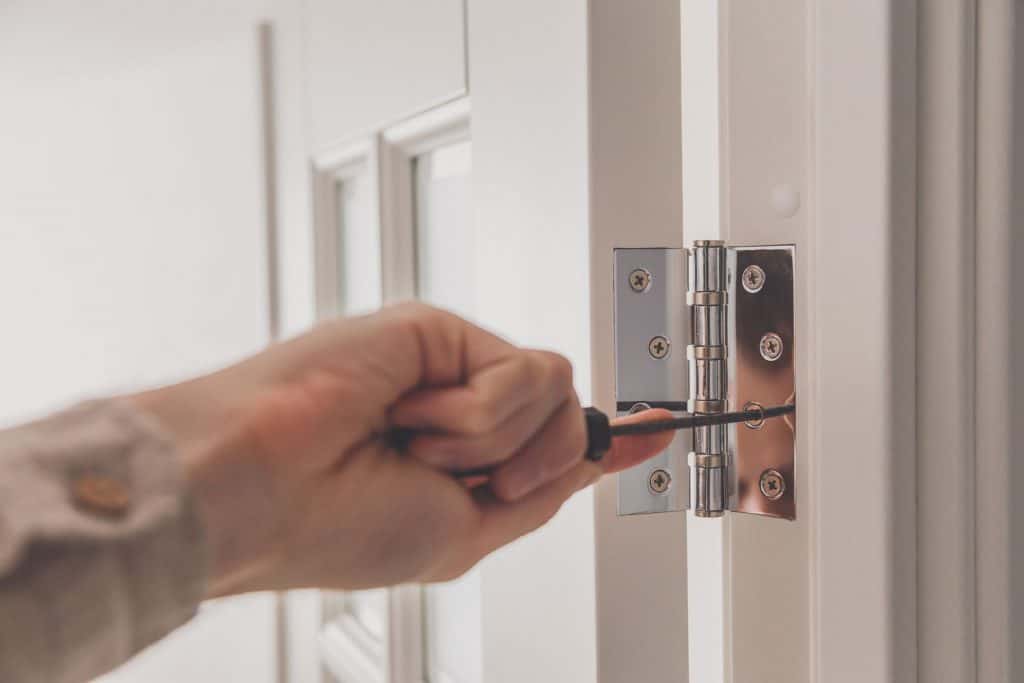
There are different reasons why your door is making a loud and irritating sound whenever you open it. Here are some of them.
- Dirty hinges. Dirt and grime may have accummulated inside your door hinges that's why they don't work smoothly. Cleaning the hinges and applying a dry-film lubricant on the hinge pin should do the trick.
- Latex paint. It can become sticky when the paint hasn't dried thoroughly. When this happens, your door will stick to the door frame and cause noise whenever you use it. You can apply beeswax on the perimeter of your door to resolve this sticky situation.
- Too much paint. It could also be that too many layers of paint were applied on the door. You would need to sand the door especially where it hits the frame and do some repainting and don't go overboard with it this time!
These are just some of the causes of a loud door. Take note of the remedies so you can act on them right away.
Why do my door hinges leave black marks?
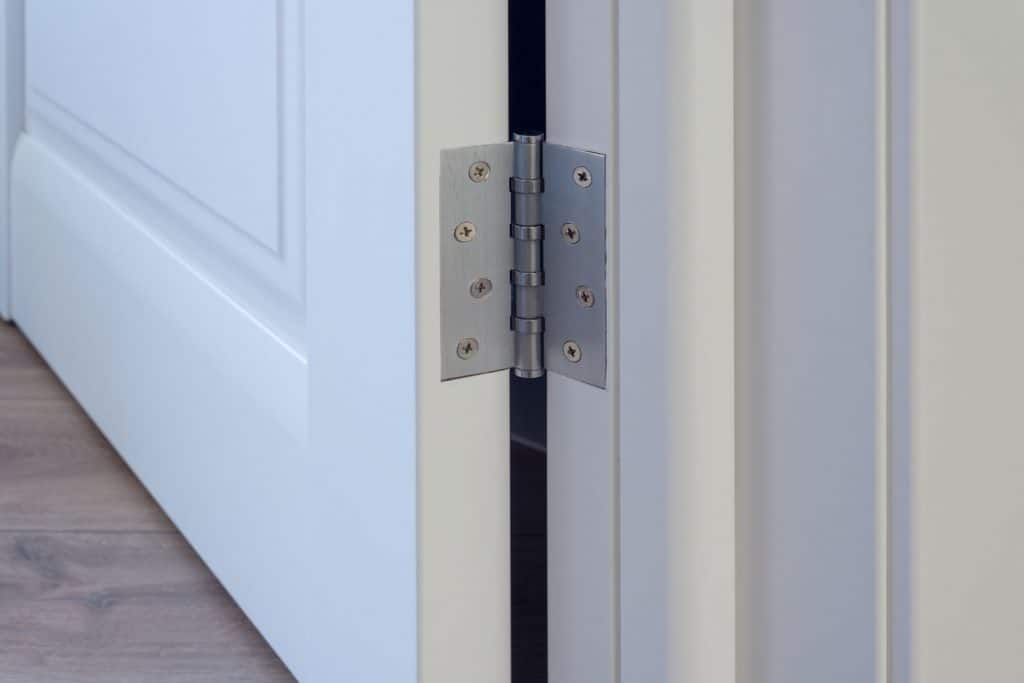
The black marks coming out of your door hinges are residues of the lubricant that you used. To make matters worse, it could have mixed up with the dirt and grime inside the hinge.
As the metals on the hinges rub against each other, the dirt and residue eventually make their way out and even fall to the floor.
When this happens, you need to remove the door to be able to take out the hinges and clean them properly. You can use mineral spirits on all parts of the door hinges. You can also apply a small amount of dry-film lubricant to the hinge pin.
Once, the black residue is gone, you can reinstall the hinges and your door. If there are black stains on your carpet or walls, you may use a grease stain remover.
Check out this odorless mineral spirits on Amazon.
How do you clean dirty hinges?
Your door hardware, including your hinges, also need to be cleaned from time to time to restore their look and keep them in great condition.
Here's how you can clean your door hinges:
- Remove the hinges from your door by unscrewing them.
- Prepare a bowl of warm water and mix some mild liquid washing soap with it.
- Soak all your hinges in the soapy water for 30 minutes.
- Use an old toothbrush to scrub the hinges and remove any remaining dirt and grime.
- Clean the brush from time to time to make sure that it doesn't get more dirt into the hinges.
- You can also mix baking soda with water to make a paste.
- Use the brush again to apply the paste all over the hinges.
- Rinse thoroughly.
- Wipe them dry using a soft cloth.
- You can also use sandpaper to remove the rust if there is any.
- Apply a rust inhibitor to protect the hinges.
- Allow the surface of the hinges to dry completely before reinstalling them.
It may require extra effort to clean your door hinges but you'll be assured that they'll be working properly and looking at their best all the time.
Final Thoughts
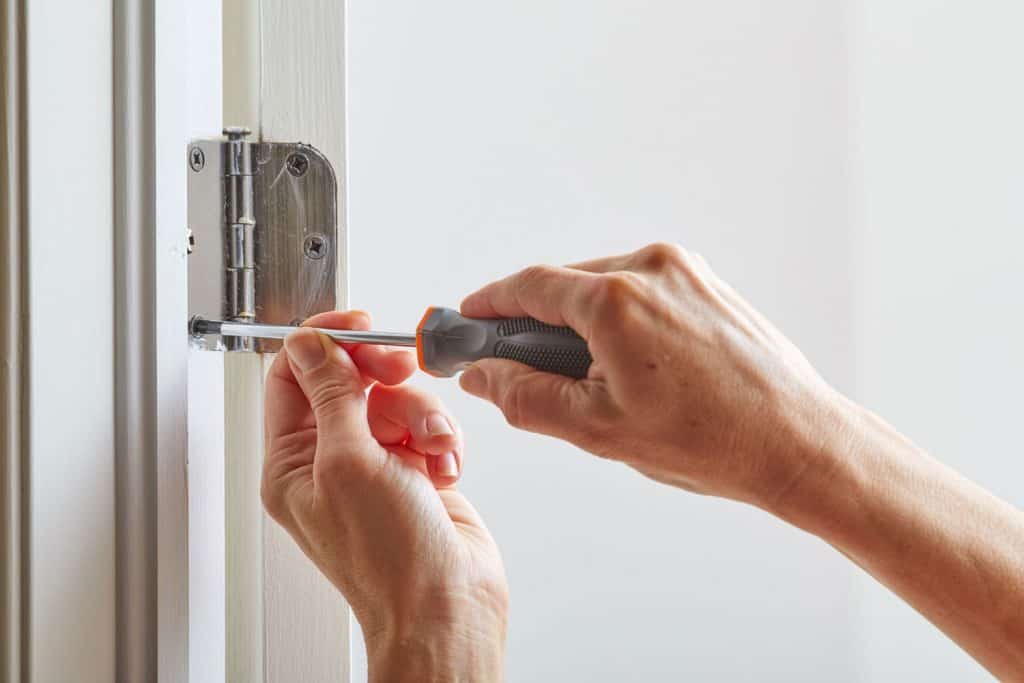
Go ahead and use Vaseline or other household products as a quick-fix solution for your squeaky door. But it is still best to clean your hinges and use a dry-film lubricant on the hinge pin so that you can enjoy squeak-free doors for a long time.
You may check these links for more door resources:


